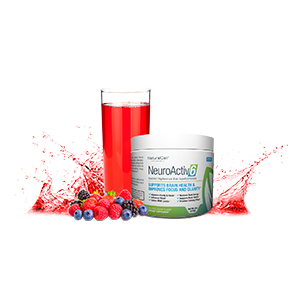
Table of Contents
Do you know the benefits of beets for the brain? We discussed it with the experts and here’s what they had to say
Beets are great for helping us lose weight and digesting our food, but they hold other benefits as well. Recent studies have found that beets are actually really good for our neurological health.
The different minerals and vitamins present in beets, specifically; folate, nitrates, fiber, and betaine, work together to make a beneficial formula that protects your brain and allows it to thrive.
1) Better Planning and Reasoning
Beets are a rich source of nitrates. Nitrates are known to improve blood flow throughout the body, but can nitrates improve blood flow to the brain? A study published in 2011 revealed that consuming nitrates does, in fact, improve cerebral blood flow. In the study, older patients were administered high or low dosages of nitrates.
The patients who received a higher dosage showed improved cerebral blood flow, but only in their prefrontal cortex. The prefrontal cortex controls our ability to plan and reason so having a nitrate-rich diet, particularly through consuming beets can help improve our planning and reasoning skills.
2) An Exercise-Efficient Brain
An amazing study was recently published by Wake Forest University that revealed the neurological benefits of consuming beetroot juice before exercising. In the study, 24 adults with high blood pressure were administered beetroot juice 50 minutes before exercising.
The results showed that the nitric oxide in beetroot juice improved the delivery of oxygen to the brain and strengthened the function of the somatomotor cortex which in turn optimized exercise performance.
3) Decreased Mental Illnesses
Beets are not only rich in nitrates, but they are rich in folic acid as well. Folic acid, otherwise known as vitamin B9, is vital for synthesizing blood cells and also plays an important role in producing DNA and RNA.
Multiple studies have shown that administering folic acid helps prevent a host of neurological and psychological disorders which include: depression, dementia, Alzheimer’s and overall mood inconsistencies. Folate may be able to help prevent mental illnesses because it undergoes a complex biochemical pathway in our brains which essentially leads to decreased inflammation.
4) Improve Cognitive Control
Beets are full of fiber as well. Fiber is well known for its physiological benefits to the body. Almost all of us know that fiber is essential in helping us control our weight and helping us digest our food properly. But recent research shows that fiber has cognitive benefits as well.
A study conducted in 2015 revealed that sufficient fiber intake actually improved the ability of children to perform complex tasks.
When fiber gets in your body it undergoes a series of reactions. Some of the end products of fiber,(such as butyrate) have been proven to improve cognitive functioning.
5) Neuroprotection
Betaine or trimethylglycine is an amino acid that has many known health benefits and it is found in beets. Apart from aiding in protein synthesis and protecting against heart disease, recent studies have revealed that betaine is actually able to protect and modulate the activity that occurs in your brain, particularly your hippocampus (the region responsible for memory and learning).
A study published in Neurochemical Research in 2017 revealed that consuming dietary betaine actually affected the level of osmolytes in the hippocampus, especially during stress, which aided in neuroprotection.
Beets are packed with benefits for your body and your brain. The presence of nitrates, fiber, folate, and betaine all combined together in one vegetable make it a candidate for being a brain superfood.
You can also take brain supplements such as NeuroActiv6 for improved mental performance and memory.

Boost Mental Energy & Focus
Discover how just one glass a day of NeuroActiv6 can increase focus, clarity, and mental energy.
Learn More >>






 EMAIL:
EMAIL:
